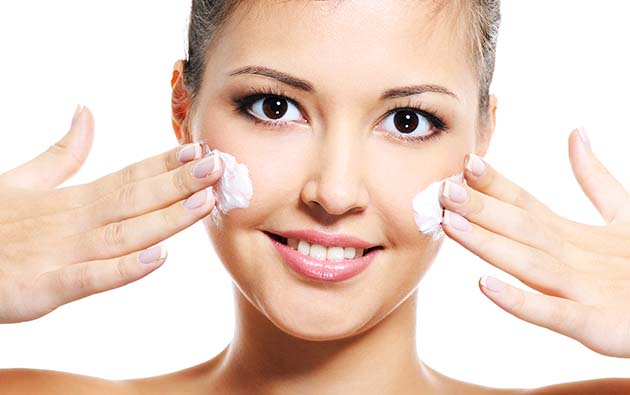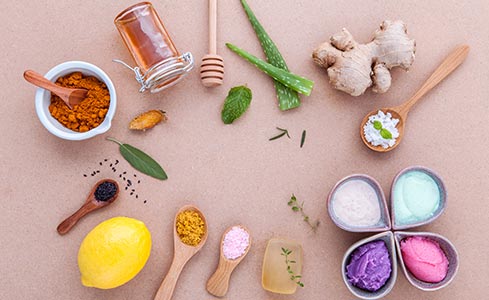
You must’ve heard the elders say that you should be careful of what you read on the internet. Well, they might not be completely wrong – with the thousands of blog pieces and advice columns available for free on the internet, you can never know which ones to trust.
This is especially true when it comes to the various types of acne remedies available online. The minute a quick hack or home remedy trends on social media, people desperate for a solution give it a try, oblivious to the fact that it may possibly backfire and further aggravate the problem.
You should be wary of baseless remedies to avoid falling in the same trap as others and do a detailed research before applying anything on your skin.
Mixing up a bunch of different items like cinnamon, lemon, honey, turmeric, garlic cloves, or curd for curing acne, without proper knowledge of how these ingredients might react with your skin is a risky choice, especially if you’re on any kind of treatment for acne.
Some people swear by heavy cream leaving their skin moisturised, but if you have acne-prone skin, it may further clog your pores. Many experts also recommend cutting out dairy from your diet as it has shown to increase the risk of acne.
Even though coconut oil has antibacterial properties, it can clog your pores and worsen acne.
Another popular home remedy that has no impact on your acne. You’re better off drinking the green tea to reap its benefits than applying it topically.
There is a fad around exfoliating with natural ingredients by mixing things you find in the kitchen. Often this process includes mixing ingredients like coffee grinds, crushed walnut, lemon, curd or yoghurt, homemade blend of ‘ubtan.’
While some of these natural ingredients have antibacterial properties, mixing them randomly without knowing how they may react with each other, may lead to more breakouts in worst case scenarios.
This is a tricky one as tea tree oil can be irritating for your skin if applied directly, yet some people have seen good results when they use it with a lighter carrier oil to balance it out. But then again, if your skin is acne-prone, it's best to stay away from oils to avoid further clogging of pores.
While this is one of the most popular home remedies that pops up each time, you’re better off without it. Toothpaste contains ingredients which can irritate your skin and the last thing you want is to further irritate your already painful pimples.
As for ingredients that actually are beneficial to your skin, your best bet would be aloe vera and tulsi. While a lot of people simple apply these ingredients in whichever manner that seems convenient, a more effective option would be to choose products that contain aloe vera or tulsi. Adding an acne-fighting face wash like AcneStar to your routine can go a long way as it has the benefits of aloe vera and tulsi.
Note: This blog’s intention isn’t to villainize home remedies as some natural ingredients genuinely work. However, if you wish to try them, you should be wary of items that can further worsen your problem. You can always trust research-backed products like AcneStar as it has been formulated to effectively tackle acne, backed by AcneStar Research Institute.
Disclaimer This blog solely intended for the educational/informational/awareness purposes and is not a substitute for any professional medical advice, diagnosis or treatment. Please consult your doctor/healthcare professional before acting on the information provided on the blog. Reliance on any or all information provided in the blog, is solely at your own risk and responsibility. Mankind Pharma Limited shall not be held liable, in any circumstance whatsoever.

Acne is a skin condition that occurs when your hair follicles become plugged with oil and dead skin cells.

it is absolutely imperative to know its type. Acne can be inflammatory or non-inflammatory which further has different lesions, as mentioned below.

Acne starts occurring in teenagers due to an increase in the level of Androgen production. Androgen is a hormone which signals the body to produce more sebum, the oil produced by the sebaceous glands.

Acne is a skin condition that occurs when your hair follicles become plugged with oil and dead skin cells. It often causes whiteheads, blackheads or pimples, and usually appears on the face, forehead, chest, upper back and shoulders. Acne is most common among teenagers, though it affects people of all ages.

Debunk acne myths by following a proper skincare regimen. Taking good care of your skin can help you achieve a glowing and acne-free skin.